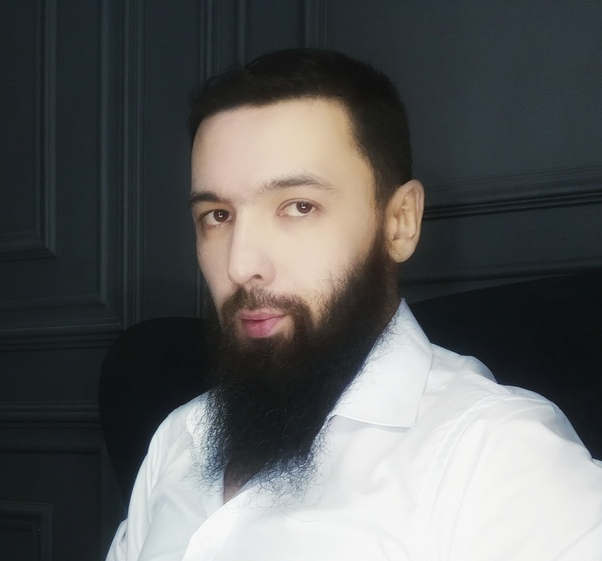
Pancreatic cancer is one of the most challenging and aggressive forms of cancer. Due to its location deep within the abdomen, symptoms often do not appear until the disease has progressed to later stages. For many, the diagnosis comes as a devastating blow, with limited survival rates and intense medical treatments. It is during such a time of crisis that the spiritual dimension of healing becomes particularly vital. While medical treatments—such as surgery, chemotherapy, and radiation—are essential, the role of Ruqyah, or Qur’anic healing, can provide emotional, mental, and spiritual support during this turbulent journey.
Ruqyah is an Islamic practice of healing through the recitation of specific verses from the Qur’an. This form of healing focuses on addressing the emotional and spiritual components of illness, which can often be overlooked in conventional medicine. By harmonizing the soul with divine healing, Ruqyah provides an inner peace that can enhance the body’s ability to endure the physical treatments and emotional stresses that accompany pancreatic cancer.
PANCREATIC CANCER: THE SILENT AGGRESSOR
Pancreatic cancer is often called the ‘silent killer’ because its symptoms are usually subtle or absent until it reaches advanced stages. The pancreas, located behind the stomach, plays a critical role in digestion and the regulation of blood sugar levels. When cancer develops in this vital organ, it disrupts many physiological processes, leading to a host of symptoms such as unexplained weight loss, jaundice, abdominal pain, and digestive issues.
In medical terms, pancreatic cancer typically begins in the cells that line the ducts of the pancreas (ductal adenocarcinoma) and spreads rapidly to nearby organs. Despite advancements in diagnosis and treatment, the prognosis for pancreatic cancer remains poor, with only a small percentage of patients surviving beyond five years after diagnosis.
From a spiritual perspective, pancreatic cancer represents a severe disturbance in the body’s inner harmony. The pancreas is responsible for regulating energy, digestion, and metabolism—critical functions that can be disrupted by stress, emotional trauma, and unresolved grief. The emotional connection between the body and the soul is deeply explored in Islamic spiritual practices, which consider illness as not merely a physical ailment but a manifestation of imbalances in the heart and soul.
THE POWER OF RUQYAH IN HEALING
Ruqyah, in its essence, is the act of using divine words to heal the soul, mind, and body. In the context of pancreatic cancer, Ruqyah serves to support patients in ways that extend beyond the physical realm. The Qur’anic verses recited during Ruqyah are not only spiritual but have been shown to have profound physiological effects as well. These recitations, accompanied by intention and faith, invoke divine mercy and help clear emotional blockages, allowing for deeper healing on the soul level.
Scientific studies have shown that emotional and mental stress can contribute to the progression of cancer. Stress weakens the immune system, suppresses the body’s natural ability to fight cancer cells, and accelerates inflammation—conditions that are particularly harmful for cancer patients. The recitation of the Qur’an has been linked to a reduction in stress levels, helping to lower cortisol (the stress hormone) and reduce inflammation. A 2017 study published in Frontiers in Psychology demonstrated that participants who listened to Qur’anic recitations experienced a significant reduction in stress and anxiety, which has direct implications for cancer patients who often suffer from emotional and psychological distress.
Furthermore, the soothing effect of the Qur’an helps bring peace to the mind and body, allowing the patient to approach their illness with greater strength and resilience. One of the most powerful benefits of Ruqyah is its ability to provide spiritual support during difficult times, helping the patient regain a sense of control and hope.
HEALING THROUGH SOUND: THE SCIENCE BEHIND RUQYAH
The role of sound in healing has long been recognized in many cultures. In modern medicine, sound therapies such as music therapy are commonly used to help patients cope with pain, stress, and anxiety. The Qur’anic recitations used in Ruqyah are similar in that they produce a form of therapeutic sound that resonates with the body and mind.
In a 2015 study published in the Journal of Cancer Research and Therapeutics, researchers found that sound therapy, including the listening to positive and healing frequencies, helped reduce the severity of pain and the emotional burden of cancer patients. Though this study did not specifically focus on Ruqyah, it highlights the potential of sound healing as a complementary therapy for cancer patients.
The recitation of specific Qur’anic verses, such as Surah Al-Fatiha, Surah Al-Baqarah, and Surah Al-Ikhlas, is believed to create a harmonious vibration that brings balance to the soul, alleviating negative emotions such as fear, anxiety, and despair. This sense of peace allows the body to better cope with the stressors of treatment, potentially improving the overall quality of life for pancreatic cancer patients.
SPIRITUAL DIMENSION OF PANCREATIC CANCER
Beyond its physical manifestations, pancreatic cancer is often seen as a profound test of faith and endurance. Islam teaches that everything in life, including illness, happens by the will of Allah (God). Through Ruqyah, patients can reconnect with their faith, finding solace in the belief that they are never alone, no matter how severe their condition may become.
For many cancer patients, the spiritual aspect of healing can be just as important as the physical. Ruqyah offers a means of submitting to Allah’s divine will while finding strength in the face of a seemingly insurmountable challenge. Through reciting Qur’anic verses and prayers, patients often experience moments of calm, spiritual clarity, and even emotional release. These moments can provide a sense of peace and surrender that helps them navigate the emotional rollercoaster of cancer treatment.
Ruqyah also provides a spiritual protection, shielding the patient from the negative effects of despair, anger, and bitterness that can arise during the fight against cancer. Instead of allowing these emotions to take root, Ruqyah helps cultivate patience (sabr) and trust (tawakkul), which are essential virtues in Islam and vital tools for coping with the challenges of cancer.
INTEGRATING RUQYAH INTO PANCREATIC CANCER TREATMENT
Ruqyah should not be seen as a replacement for conventional medical treatments but as a complementary spiritual practice that enhances the overall healing process. For pancreatic cancer patients, Ruqyah offers spiritual, emotional, and psychological support during a challenging and often overwhelming time.
The Qur’anic recitations used in Ruqyah help reduce stress, calm the mind, and strengthen the immune system, all of which contribute to the body’s ability to fight cancer. While Ruqyah alone may not cure pancreatic cancer, it can certainly play a role in improving the patient’s quality of life, providing peace of mind, and offering hope in the face of uncertainty.

